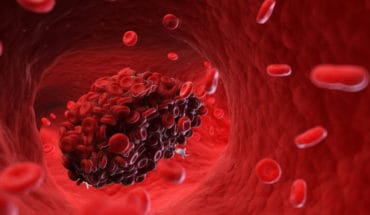Understanding how the heart is built in the womb could help develop drugs and techniques to repair it in adult life, according to University of Aberdeen researchers who have secured funding to investigate the details of this important process.
Around 420 people die every day in the UK as a result of cardiovascular disease, according to the British Heart Foundation.
Heart muscle is built in the embryo but cannot be effectively repaired in adults, for instance after a heart attack.
The new study, supported by a five-year grant from the British Heart Foundation worth more than £1 million, will study how the embryonic heart is built, to see if lessons can be learned that will inform ways to treat damage in later life.
The new study, supported by a five-year grant from the British Heart Foundation worth more than £1 million, will study how the embryonic heart is built, to see if lessons can be learned that will inform ways to treat damage in later life.
A key mechanism called Wnt signalling directs several important steps during the building of the embryonic heart and is also involved in heart regeneration.
Using cutting edge embryonic stem cell approaches, the researchers will attempt to comprehensively identify the molecules that are directed by this essential Wnt signalling mechanism to build the heart muscle. This knowledge will be used in the future in attempts to improve adult heart regeneration.
Professor Stefan Hoppler, from the University of Aberdeen’s Institute of Medical Sciences said: “Given the massive impact cardiovascular disease has on individuals and on our health care systems, this fundamental research could eventually lead to significant beneficial impact.
“Unlocking the secrets of how heart muscle cells are generated during embryonic life not only helps our understanding of birth defects in new-borns but will also provide valuable clues as to how we can develop treatments to replicate this for the benefit of adult heart patients.
“We know that Wnt signalling plays an important role and this latest support from the British Heart Foundation will allow us to look more closely at this important process than ever before.”
Abigail Woodfin, Senior Research Advisor at the British Heart Foundation, said: “If we can understand the processes involved in growing a new heart in the womb, we may be able to use this to repair adult hearts that have been damaged. There’s still so much we need to understand, but vital research like this – which uses the very latest tools and technology – will help move us closer to the era of regenerative medicine.”
The award also provides a welcome boost to the imminent opening of the Aberdeen Cardiovascular and Diabetes Centre, a collaboration between the University of Aberdeen and NHS Grampian. Professor Mirela Delibegovic and Professor Graeme Nixon, centre directors, welcomed the news.
Professor Delibegovic said: “This is a great example of the quality of research at Aberdeen into fundamental sciences in heart development and together with our colleagues at the NHS Grampian will hopefully take us a step closer towards understanding how heart disease occurs and how to hopefully cure it.”
The centre aims to tackle cardiovascular disease and diabetes by reducing risk, developing new treatments and improving diagnosis, communication and education.
- Gut microbiome could delay onset of type 1 diabetes - 3rd April 2025
- The da Vinci 5 Robot Is Set To Transform Bariatric Care: - 31st March 2025
- Beyond money: the hidden drivers fuelling child food insecurity - 31st March 2025






